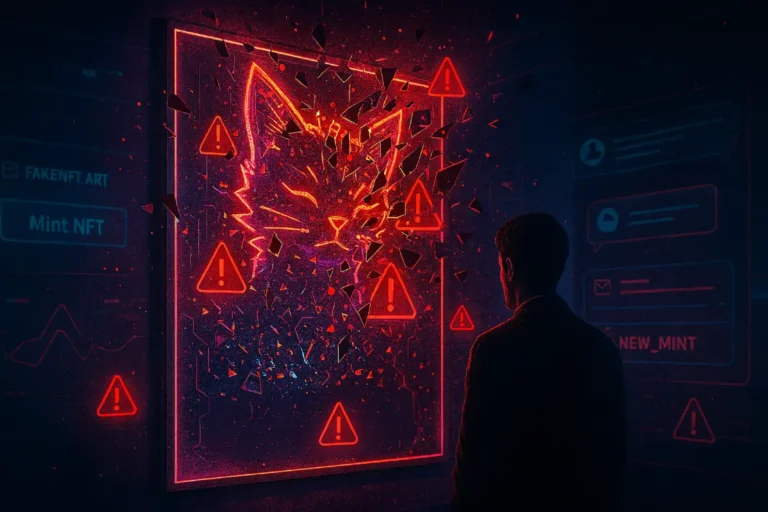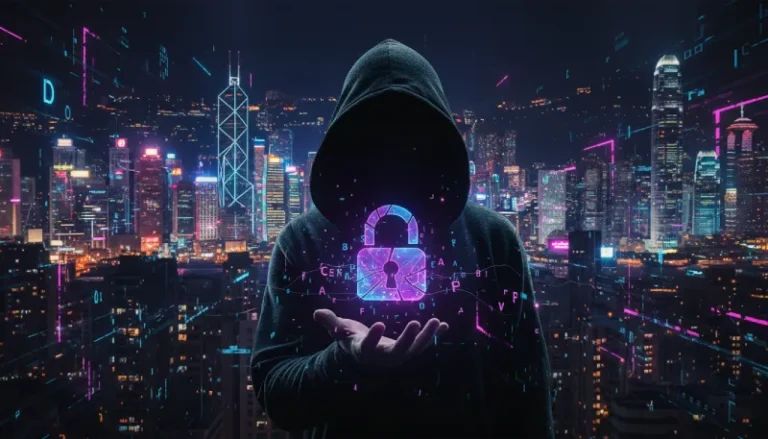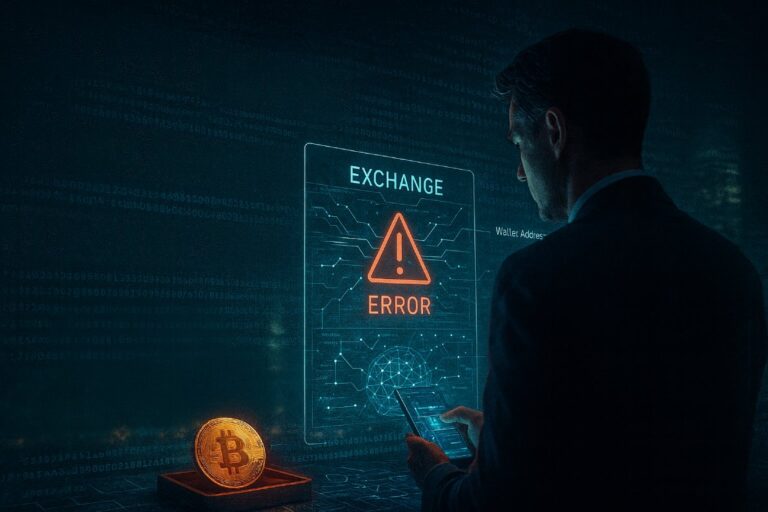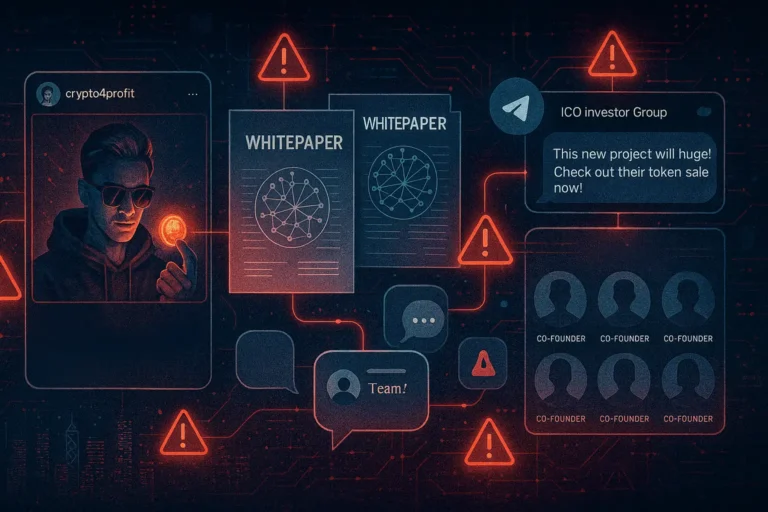Hong Kong has become one of Asia’s most active NFT markets, which is great for collectors and artists but also means scammers have shown up in force. NFTs live on blockchains where transactions are irreversible and wallets are pseudonymous. Add in a culture where everyone is terrified of missing the next big drop and you get an environment where fraud is both easy to execute and hard to prosecute.
I’m going to explain how these NFT scams actually work, what red flags you should recognize, and what options exist if you’ve already been targeted.
What are NFT Scams?
Non-Fungible Tokens (NFTs) are blockchain-based digital assets that certify ownership of unique items such as digital artwork, collectibles, or virtual property. They have unlocked unprecedented opportunities for creators, investors, and brands to monetize and trade digital content globally.
However, their decentralized structure, borderless accessibility, and irreversible transactions also make them highly susceptible to fraud. Once an NFT or cryptocurrency transfer is recorded on-chain, it cannot be reversed. Combined with the anonymity of blockchain addresses and the lack of unified regulation, this environment allows scammers to operate with minimal oversight. A powerful fear of missing out (FOMO) culture amplifies these risks, where fraudsters exploit this urgency through fake mints, counterfeit collections, and deceptive marketing campaigns designed to pressure victims into acting without due diligence.
Hong Kong’s NFT ecosystem, which is supported by art galleries, Web3 start-ups, and digital-asset marketplaces, has flourished in recent years. Unfortunately, this same enthusiasm has attracted criminal actors who take advantage of the excitement surrounding new NFT projects and limited public awareness of digital-asset security.
Common NFT Scams Affecting Hong Kong Collectors
Hong Kong’s NFT market continues to attract both genuine innovators and opportunistic fraudsters. Below are five major scam types collectors should recognize and avoid:
- Fake NFT Projects: Scammers exploit investor excitement and FOMO with polished branding, only to vanish once funds are secured. The Frosties case remains one of the most notorious NFT frauds to date. Developers launched an appealing project promising community rewards and metaverse features, selling 8,888 NFTs before abruptly disappearing with over US$1 million.
- NFT Art Theft: Scammers routinely mint and sell digital art without the creator’s consent, targeting emerging artists and even the deceased. For example, after Canadian illustrator Qing Han (Qinni) passed away, fraudsters sold her artworks as “memorial NFTs” on several platforms.
- Rug Pull Schemes: Rug pulls occur when NFT developers promote credible-looking projects and attract investors before deleting websites, shutting Discord channels, and disappearing with the funds. The Frosties incident itself doubled as a rug pull, but smaller-scale cases have also surfaced in Asia’s “play-to-earn” NFT gaming scene.
- Pump-and-Dump Manipulation: Groups artificially inflate NFT floor prices through coordinated bidding, social media hype, or influencer promotion. Once retail investors enter, organizers dump their holdings and exit. In Asia, one Solana-based “Metaverse” collection collapsed by over 90% after insiders offloaded their NFTs.
- Token Substitution Scams: Attackers sometimes pay for NFTs using lookalike or worthless tokens, deceiving sellers who fail to verify contract addresses
How NFT Scams Spread: Tactics and Channels
NFT scams rely on digital deception, exploiting social media, messaging platforms, and online hype to target unsuspecting investors. The following are the most common channels used to reach Hong Kong’s expanding NFT community:
- Social Media Impersonation: Scammers clone the profiles of artists, influencers, and project founders on Instagram, X (Twitter), and Discord, using verified accounts and fake giveaways to promote fraudulent minting links or phishing sites.
- Email and Messaging Deception: Fraudsters send convincing emails or DMs posing as trusted NFT marketplaces or wallet providers. These messages use urgency to redirect victims to malicious sites that request wallet access.
- Celebrity and Brand Exploitation: Hong Kong’s entertainment and luxury sectors are frequent targets of impersonation. Scammers forge celebrity partnerships or brand endorsements to add credibility to fake NFT launches and attract affluent buyers.
- Airdrop and Minting Frauds: “Free NFT” airdrops and whitelist events lure victims into connecting their wallets. Once approved, scammers drain assets or charge inflated gas fees for nonexistent mints.
- Gaming and Utility-Token Scams: Fraudulent “play-to-earn” NFT games promise high yields for early participants but often collapse once new investment stops. Developers disappear, tokens lose value, and players are left with unusable assets.
How to Spot NFT Scams
Navigating Hong Kong’s fast-paced NFT market requires more than enthusiasm; it demands vigilance:
- Due Diligence ChecklistBefore purchasing or minting an NFT, always verify the project’s authenticity:
- Research the team and project history through verifiable LinkedIn profiles, previous NFT releases, and clear project roadmaps. Anonymous founders are a red flag.
- Check official announcements from verified project websites or accounts; fake discord and telegram groups frequently impersonate well-known brands
- Authentic NFT projects typically have consistent, transparent trading patterns visible on Etherscan or Solana.
- Verification Techniques
- Confirm artwork ownership using reverse image search to ensure artwork was not stolen.
- Examine the smart contract by comparing the contract address listed on the project’s website with the one displayed on your wallet before signing.
- Verify marketplace listings by purchasing NFTs through verified collections on platforms such as OpenSea.
- Community Warning SignsDiscord and Telegram can also be hotbeds for social engineering scams. Be cautious if you notice:
- Admins urging to “mint now” through direct messages
- Sudden links posted by new or unverified users
- Promises of exclusive airdrops
- Price Manipulation IndicatorsScammers often inflate demand through coordinated trading:
- Unusual price spikes or identical bid patterns
- Repeated transactions between the same wallets to inflate demand.
- Artificial floor prices
How NFT Collectors Can Protect Themselves
- Safe Trading Practices: Stay safe by trading only on verified marketplaces like OpenSea or Blur.
- Wallet Security: Use hardware wallets (Ledger, Trezor) instead of browser-based ones for long-term storage.
- Community Resources: Engage with trusted NFT communities on Discord or Telegram to verify projects and report suspicious activity early.
- Education Initiatives: Keep learning by following local blockchain groups, scam alerts, and industry updates.
What to Do If You’ve Been Scammed
Act fast, the first 24 hours are critical:
- Stop all further actions: Disconnect your wallet, stop all transactions, and record the scammer’s wallet address, transaction hashes, and communication logs.
- Preserve every detail: Screenshots, emails, chat messages and platform links are critical as evidence
- Report to the Authorities: Report immediately to the Hong Kong Police, SFC, and the affected marketplace.
- Seek Professional On-Chain Investigation: Blockchain transactions are permanent. With expert tools, stolen funds can often be traced, even across complex laundering routes.
Recover Your Assets with Sphere State Group
The perpetrators behind NFT scams may conceal their identities, but they cannot erase their footprints on the blockchain.
At Sphere State Group, our investigations team specializes in tracing stolen NFTs and digital assets through intricate on-chain and off-chain movements. Our forensic reports provide actionable intelligence that strengthens law enforcement collaboration and supports asset recovery efforts across multiple jurisdictions.
If you’ve been a victim of an NFT scam, don’t wait. Contact Sphere State Group today for a free, confidential case evaluation and learn how our experts can help you recover your digital assets.



